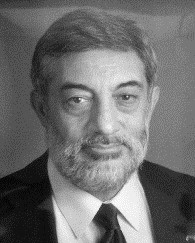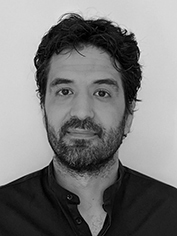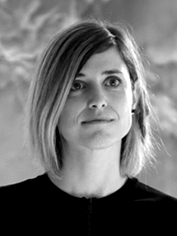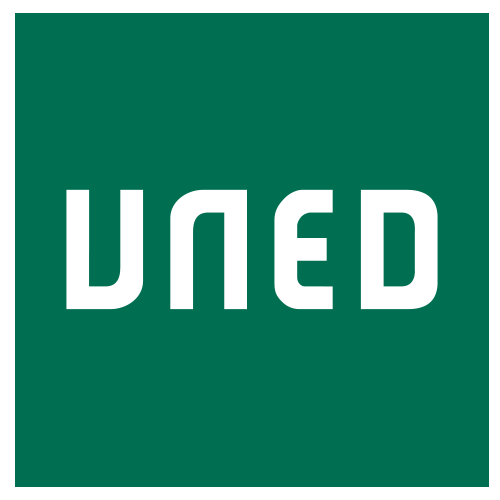Quiénes somos

Miguel Ángel Sebastián es Ingeniero Industrial (1976) y Doctor Ingeniero Industrial (1980) por la UPM, ha sido profesor de las Universidades UPM, U. de Sevilla, U. de Castilla-La Mancha y Universidad Nacional de Educación a Distancia (UNED). En la actualidad es Catedrático de Universidad en el Departamento de Ingeniería de Construcción y Fabricación de la ETS de Ingenieros Industriales de la UNED, en el área de conocimiento de Proyectos de Ingeniería. Ha dirigido cuatro Tesis Doctorales en temas relacionados con el Patrimonio Industrial español y varios trabajos fin de titulación sobre dichos temas. Es autor de varias publicaciones sobre Patrimonio Industrial y sobre la docencia de materias de Historia de la Tecnología y Patrimonio Industrial. También ha impartido conferencias invitadas con contenidos relacionados con el Patrimonio Industrial y sobre aspectos históricos de la tecnología y de la Ingeniería Industrial. Es coordinador del Grupo de Trabajo sobre Patrimonio Industrial en Fabricación (PATRIF) de la Sociedad de Ingeniería de Fabricación.
Miguel Ángel Sebastián is Industrial Engineer (1976) and PhD Industrial Engineer (1980) at the UPM, he has been lecturer at the Technical University of Madrid, University of Seville, University of Castilla-LA Mancha and National University of Distance Education (UNED). Currently he is Professor in the Construction Engineering and Manufacturing Department at the Superior Technical School of Industrial Engineers of UNED, in the area of knowledge of Engineering Projects. He has directed four doctoral theses on topics related to the Spanish Industrial Heritage and several final degree studies on these subjects. He is the author of several publications on Industrial Heritage and on the teaching of subjects of History of Technology and Industrial Heritage. He has also given guest lectures with contents related to the Industrial Heritage and historical aspects of technology and Industrial Engineering. He is coordinator of the Working Group on Industrial Patrimony in Manufacturing (PATRIF) of the Society of Engineering of Manufacture.

Juan Claver Gil es Doctor en Ingeniería de Fabricación y Máster en Ingeniería Avanzada de Fabricación por la UNED, y Arquitecto por la Universidad Politécnica de Madrid. Ha sido profesor de la Universidad Nebrija en materias relacionadas tanto con la ingeniería de fabricación como con la arquitectura. Es Profesor en el Departamento de Ingeniería de Construcción y Fabricación de la UNED y Profesor-Tutor en los Centros Asociados de Madrid y Madrid-Sur, vinculado a asignaturas de las áreas de los Procesos de Fabricación, Ciencia de los Materiales y Proyectos de Ingeniería. Es secretario del Grupo de Trabajo en Patrimonio Industrial de Fabricación (PATRIF) de la Sociedad de Ingeniería de Fabricación. En su actividad investigadora en el campo del Patrimonio Industrial destaca la aplicación de Técnicas Multicriterio de Ayuda a la Decisión al estudio de estos bienes, habiendo publicado múltiples artículos en congresos internacionales y revistas científicas, así como dos libros.
Juan Claver Gil holds a PhD in Manufacturing Engineering and a Master´s Degree on Advanced Manufacturing Engineering from UNED, and he also has a degree in Architecture from the Universidad Politécnica de Madrid. He has taught manufacturing engineering and architecture subjects at Universidad Nebrija. He is Lecturer at the Department of Construction and Manufacturing Engineering of the UNED, and “Profesor-Tutor” at the Associated Centres of Madrid and Madrid-Sur, teaching subjects of Manufacturing Processes, Materials Science and Engineering Projects. He is Secretary of the Work Group on Manufacturing Industrial Heritage (PATRIF) of the Society of Manufacturing Engineering (SIF). His research activity on the field od Industrial Heritage includes the application of Multicriteria Decision Making Tools to the study of this kind of assets. He has published several papers in international congresses and scientific journals, and two books in these issues.

Cristina González Gaya es Ingeniero Industrial (1993) por la Universidad Politécnica de Madrid y Doctora Ingeniero Industrial (1996) por la UNED. Ha desarrollado toda la actividad docente e investigadora en la ETS de Ingenieros Industriales de la UNED, desde el año 1994 hasta la actualidad. Es Profesora Titular de Universidad en el Departamento de Ingeniería de Construcción y Fabricación de la ETS de Ingenieros Industriales de la UNED. Se destaca la docencia en disciplinas de Ingeniería de Fabricación, Ingeniería de la Construcción, Sistemas Normalizados de Gestión y Seguridad y Salud en el Trabajo. Ha dirigido varias tesis industriales relacionadas con la Historia de la Ingeniería y con temas de Patrimonio Industrial. Es autora de artículos en revistas científicas internacionales en el ámbito del Patrimonio industrial y tecnológico. Es miembro del Grupo de Trabajo en Patrimonio Industrial de Fabricación (PATRIF) de la Sociedad de Ingeniería de Fabricación (SIF) y coordinadora del Grupo de Trabajo en Riesgos en Ingeniería de Fabricación (REM) de dicha Sociedad.
Cristina González Gaya is an Industrial Engineer (1993) from the Polytechnic University of Madrid and a PhD in Industrial Engineering (1996) from the UNED. From 1994 to the present, she has developed all her teaching and research activities at the ETS of Industrial Engineers of the UNED. She is a University Professor in the Department of Construction and Manufacturing Engineering of the ETS of Industrial Engineers of the UNED. She highlights her teaching in the disciplines of Manufacturing Engineering, Construction Engineering, Standardized Management Systems, and Occupational Health and Safety. She has directed several doctoral theses related to the History of Engineering and Industrial Heritage issues. She is the author of articles in international scientific journals in the field of industrial and technological heritage. She is a member of the Industrial Manufacturing Heritage Working Group (PATRIF) of the Manufacturing Engineering Society (SIF) and coordinator of the Manufacturing Engineering Risk Working Group (REM) of that Society.

Amabel García Domínguez es Doctora en Tecnologías Industriales y Máster en Ingeniería Avanzada de Fabricación por la UNED, y Arquitecto por la Universidad Politécnica de Madrid. Ha impartido docencia universitaria en distintas figuras y en distintos centros, como la Universidad Nebrija, ESNE, la ETSAM de la UPM o el Centro Asociado a la UNED de Madrid-Sur, en materias relacionadas con el diseño, la ingeniería de fabricación y la arquitectura. También ha desarrollado su actividad profesional en el campo del diseño y de la arquitectura, profundizando en campos como la parametrización y optimización de los diseños o la virtualización hiperrealista de espacios arquitectónicos. Entre sus publicaciones, se incluyen artículos en congresos nacionales e internacionales, así como en revistas con impacto JCR, en el campo del patrimonio industrial.
Amabel García Domínguez holds a PhD in Industrial Technologies and a Master´s Degree on Advanced Manufacturing Engineering from UNED, and she also has a degree in Architecture from the Universidad Politécnica de Madrid.She has taught differente subjects in different university centers, such as the Nebrija University, ESNE, the ETSAM of the UPM or the Associated Center of the UNED of Madrid-Sur, in matters related to design, manufacturing engineering and architecture. She has also developed her professional activity in the fields of design and architecture, with particular attention to fields such as the parameterization and optimization of designs or the hyper-realistic virtualization of architectural assets and spaces.
Her publications include articles in national and international conferences, as well as in journals indexed in the JCR index, related to the field of industrial heritage..
colaboración universitaria
En la actividad del grupo participan activamente otros profesores tanto de la UNED como de otras universidades, siendo el desarrollo de iniciativas docentes un pilar del grupo.
colaboración con otras organizaciones
Igualmente el grupo colabora con organizaciones y grupos ajenos a la universidad, canalizando con ello la necesaria relación con los distintos agentes que desde la sociedad se aproximan al patrimonio industrial y sus bienes.
colaboración con los estudiantes
El grupo potencia la participación de los estudiantes en las actividades que promueve.

